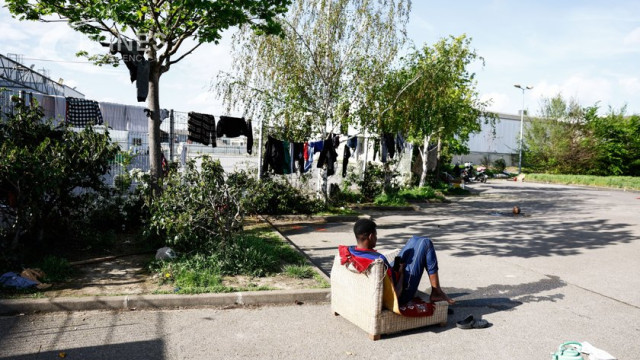A European Central Bank (ECB) survey shows that more than a quarter of low-income households expect a delay in their mortgage payments in the coming months, Euronews reports.
More low-income Europeans expect to be late paying basic bills in the coming months due to rising interest rates, rents and utility costs, according to a study by the ECB.
"The ability of households to meet their housing costs and mortgage payments is a source of concern, particularly for lower-income households," the researchers wrote in an article in the ECB's Economic Bulletin, presenting a snapshot of the "housing burden of households" in the 11 largest economies of the Eurozone.
Since the ECB began raising interest rates in July 2022, overall housing costs have increased by 6% for direct owners, but by 12% and 9% for mortgagees and renters respectively, the report by Omiros Kouvavas and Desislava Rusinova reveals.
In January 2024, households paid an average of €765 per month for total housing costs, including utilities (such as gas, electricity and water), home maintenance and rent or mortgage costs, the report said.
Housing costs take up about 40% of income for renters, 35% for mortgage borrowers and 20% for homeowners. At the same time, people on the lowest incomes who have to rent their homes pay about half of their monthly salary in costs.
People with mortgages face the most difficulties.
Of the three main categories, those with a mortgage face the biggest costs due to increased interest rates, with their average monthly payment exceeding €1,100.
The increase in interest rates also affected the rental market. Rising borrowing costs halted new investment, and prices rose accordingly in a rental market already experiencing a shortage of vacant homes.
According to the ECB, in the 11 countries reviewed, landlords pay an average of more than €800, while homeowners approach the cost of €500 per month, mainly due to rising home maintenance costs. Utility costs have been on the decline lately.
Of the 11 countries, housing costs were the highest in Ireland - roughly around €900 a month excluding mortgages, but more than €1,200 if the mortgage payment is included.
Housing costs are second and third highest in Germany and Austria, amounting to around €750 (€900 with mortgages). People in Greece and Portugal have the lowest housing costs of the 11 countries.
When housing costs are considered as a proportion of household income, Austria is the most expensive country, with 29% (33% if mortgages are included) of income going to such costs.
How the risk of late payments increases
Rising household incomes have largely offset the rise in housing costs over the past few years, although there have always been some low-income households (between 5 and 10% of the lowest paid 50%) which have fallen behind on their payments over the past few years in the previous months. However, the ECB's forecast index shows their expectations for the coming months have worsened.
"The proportion of households expecting to make a late payment in the next three months increased significantly among lower-income households," the report said.
The proportion of low-income earners who expect to be late on their utility or rent payments in the next three months rose from 15% to more than 20%, and for late mortgage payments, it almost doubled to 30%.
Although eurozone inflation is easing, expectations are high that the ECB will start cutting its historically high interest rate in June, bringing some relief to the property market by allowing investment to pick up and lead to a wider choice of properties, which will ultimately allow mortgage and rental costs to be mitigated. /BGNES







